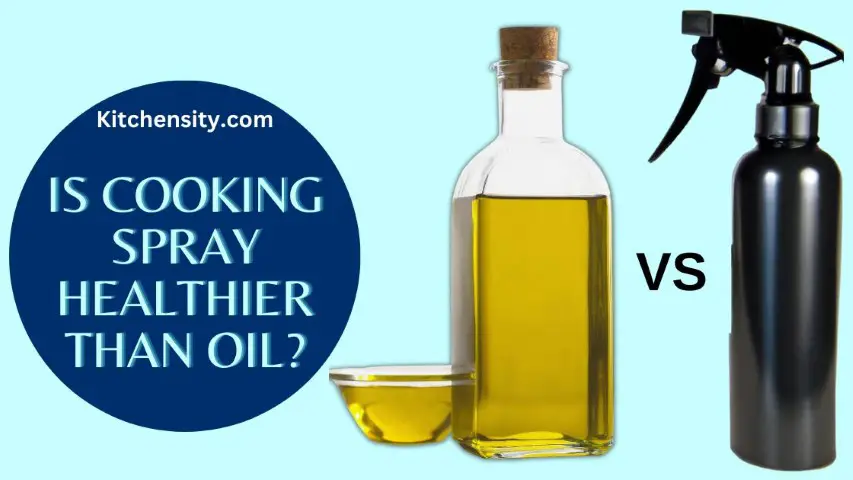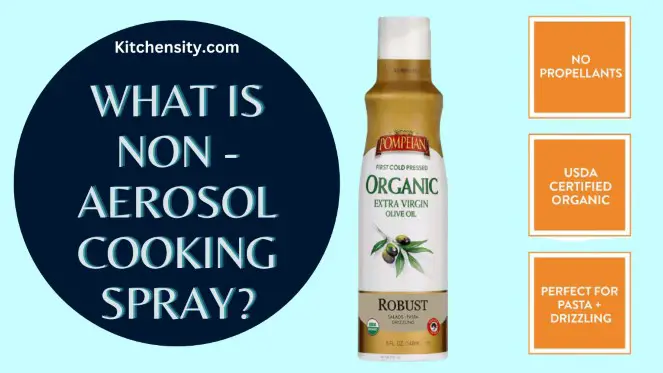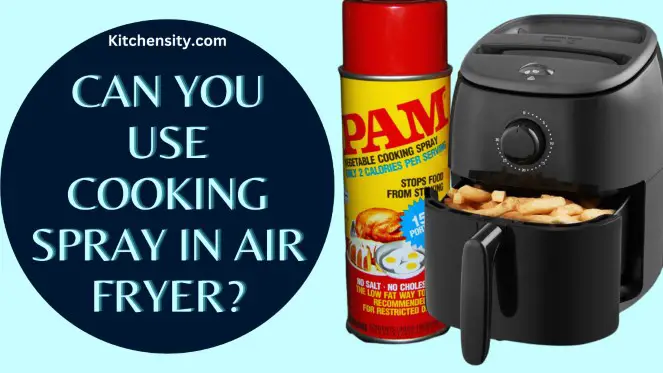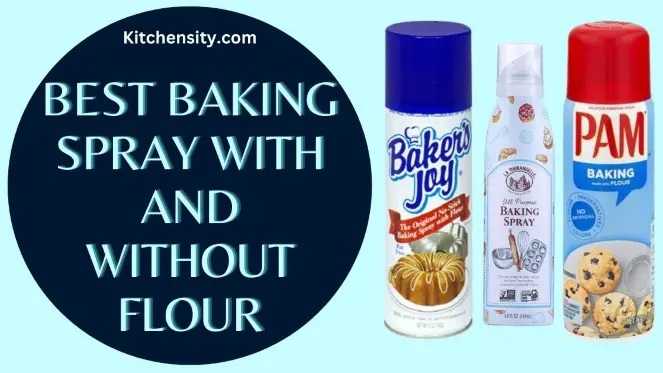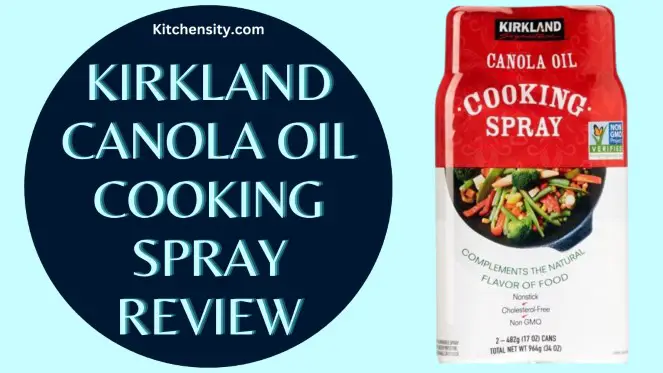Cooking spray is an easy-to-use and healthy alternative to traditional oils that helps to prevent food from sticking to pans, baking sheets, grills, etc, and adds flavor and texture to dishes. However, like any other cooking ingredient, it is essential to use cooking spray in moderation.
So in this article, we will cover the factors and some tips associated with using too much cooking spray and help you use it safely and efficiently.
Table of Contents
What Happens if You Use Too Much Cooking Spray?
If you use too much cooking spray, it will not only be harmful to your health but also can damage the pan. Gradually, there will be build-up in the pan, which becomes very difficult to remove, and it will damage the pan. It is one of the major disadvantages of using cooking spray.
We use cooking spray as a healthy alternative to oil, but if we use it too much, then we will end up eating too many calories and fats, which may affect our health. Although some brands promise 0 calories and fats, it is only true for a fraction of a spray. For healthy uses, spray it until it coats the pan lightly, but anything more than that is unhealthy.
So always use it in moderation, and try to use a combination of both oil and spray because the most important thing is to enjoy your food and have fun in the kitchen!
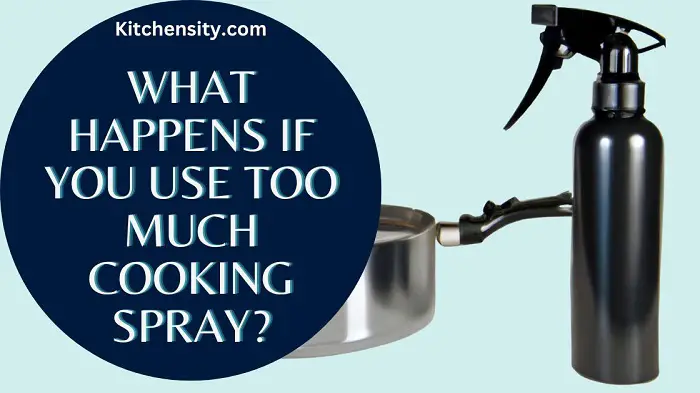
How Much Cooking Spray Should You Use?
The amount of cooking spray you should use depends on several factors, such as the type and size of the cooking surface, the temperature and duration of cooking, and the desired outcome of the food.
It is meant to be used sparingly and a few seconds of spraying is usually enough to coat a pan or a grill. You should always aim to create a thin and even layer. Using it too much can cause an uneven coating, and often lead to a greasy residue on your food.
You should use cooking spray only when necessary. Some recipes may require greasing the pan before baking, while others may not. You should also consider the type of food you are cooking. For example, foods that already contain oil, like bacon or sausages, may not need additional greasing.
A good way to ensure you are using the right amount of cooking spray is to hold the can about 6 inches away from the pan and spray in short bursts. This will help distribute the spray evenly and prevent excess build-up.
Is Cooking Spray Harmful?
Cooking spray is generally safe for consumption, as it is made of food-grade ingredients such as oil, lecithin, and propellants, that are regulated by the FDA.
However, some cooking sprays may contain additives or chemicals that can be harmful if ingested or inhaled in large amounts, or if they react with high heat or acidic foods.
For instance, some non-stick sprays contain perfluorinated compounds (PFCs) that have been linked to health issues such as cancer, liver damage, and developmental problems. Other sprays may contain allergens, like soy or peanuts, that can trigger allergic reactions in sensitive individuals.
So try to avoid these types of cooking sprays, and therefore, always read the labels and choose brands that are free of harmful or unnecessary ingredients, and try to use them sparingly and in a well-ventilated area.
Can Cooking Spray Make You Sick?
Studies have found that cooking spray is safe to use but using it too much or inhaling its vapors can potentially make you sick, depending on the type and amount of spray, as well as your health condition and sensitivity.
Some people may experience symptoms such as nausea, headache, dizziness, or respiratory distress, due to the fumes or aerosols released by cooking spray. This may happen due to exposure to a chemical known as diacetyl, which is used to enhance its flavor. But this chemical is discontinued by most brands, however, do check the labels before purchasing.
Most of the chemicals or additives used in the spray are approved by FDA, and they are safe to use under certain conditions or if consumed in small amounts.
Therefore, it is essential to use cooking spray responsibly and in moderation and keep it out of reach of children.
Does Cooking Spray Damage Cookware?
Cooking spray can cause build-up on cookware, especially if used excessively. The chemicals in it can create a sticky residue that is difficult to remove, and over time, it can damage the surface of the cookware.
Using too much cooking spray can also cause the food to stick to the pan, making it difficult to clean. To prevent damage to your cookware, use it sparingly and clean your pans thoroughly after each use.
If you notice a build-up of residue on your cookware, use a gentle scrub brush and mild soap to remove it. If you follow these steps, your cookware will not be damaged.
You May Also Like
Final Verdict
In conclusion, it can be a useful tool in the kitchen, but like with any ingredient or cooking method, it’s important to use it in moderation.
Using too much of it can lead to potential health risks, such as respiratory issues, and create a greasy residue on your cookware. In addition, excess build-up of cooking spray can damage the non-stick coating on your pans over time
When using it, it’s best to follow the recommended amount listed on the can and to be aware of the potential hazards.
Additionally, it’s always a good idea to explore alternative cooking methods, such as using parchment paper or cooking with less oil, to reduce the need for cooking spray altogether.
By using it sparingly and cleaning your cookware thoroughly, you can enjoy the benefits of this popular cooking aid without any negative side effects.
References:
- https://www.foxnews.com/health/the-truth-about-whats-really-in-cooking-sprays
- https://foodtofit.ca/blogs/post/non-stick-cooking-spray-harmful-to-your-health
Katrina Smith is a seasoned expert with over 25 years of experience in all things related to cooking and the kitchen. As an avid cook and kitchen enthusiast, she is passionate about sharing her knowledge and expertise on cookware, kitchen appliances, kitchen tips, and kitchen staples.
Through her articles and reviews, Katrina aims to inspire and help others improve their cooking skills, experiment with different ingredients, and invest in quality cookware and appliances.

